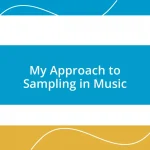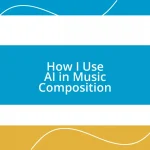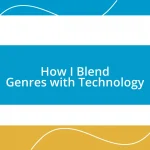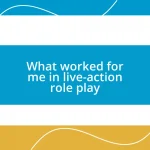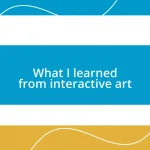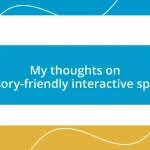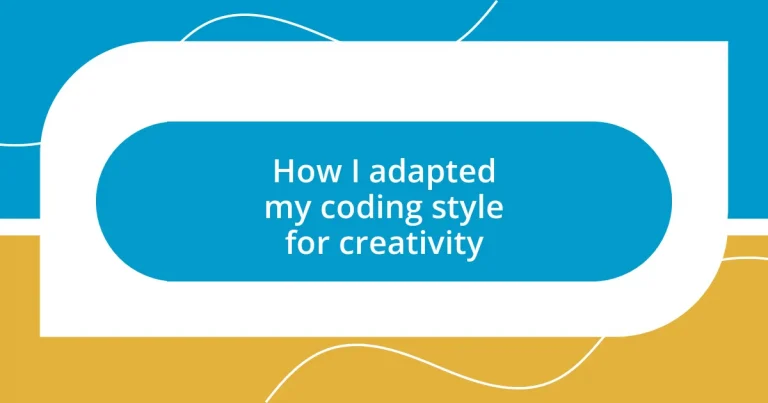Key takeaways:
- Coding intertwines technical skill with creativity, where constraints can inspire innovative solutions and artistic expression.
- Creativity in coding enhances problem-solving skills and fosters collaboration, leading to groundbreaking ideas and productivity improvements.
- Tools like visual programming environments and game engines, along with engaging with diverse communities, significantly boost creative coding efforts.
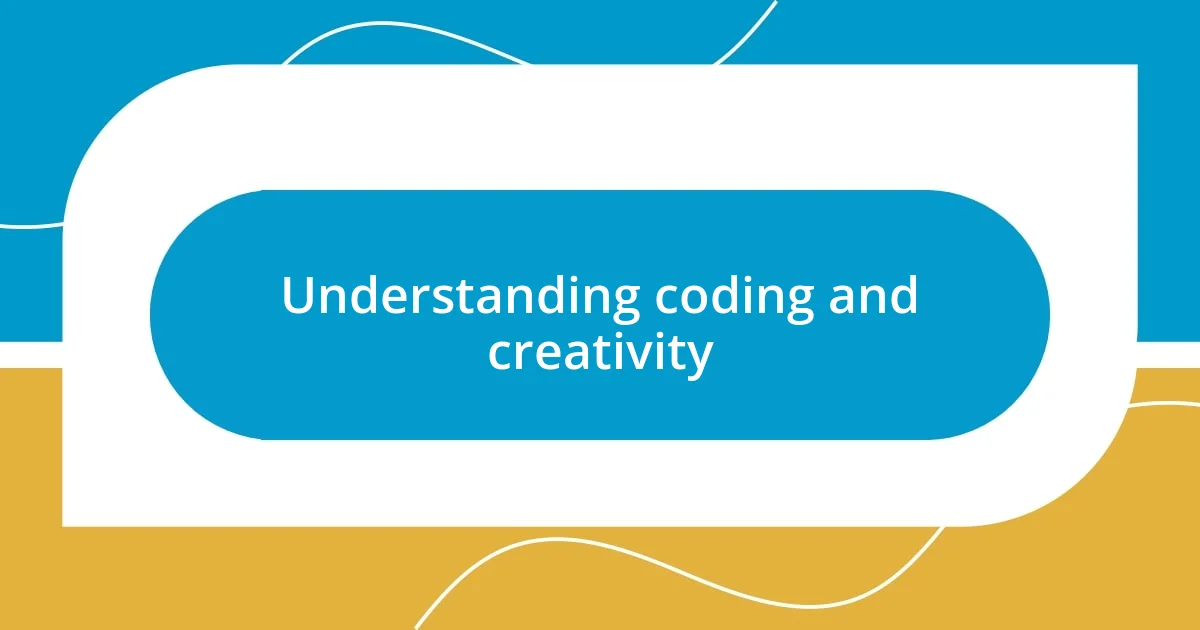
Understanding coding and creativity
Coding and creativity may seem like separate worlds at first glance, but I’ve discovered they are deeply intertwined. Remember the last time you felt a rush of excitement when solving a tricky bug or coming up with a new feature? That’s the creative spark in coding, where algorithmic thinking meets artistic expression. It’s fascinating how structuring code can resemble crafting a story, with each function and variable contributing to the narrative.
In my journey, I’ve found that creativity in coding often emerges from constraints. For instance, when I had to build a project under a tight deadline, I felt both pressure and inspiration. It pushed me to think outside the box, leading to innovative solutions I hadn’t considered before. Have you ever faced similar challenges that ignited unexpected creativity? It’s those moments that showcase coding as not just a technical skill, but a canvas for inventive thinking.
The beauty of blending coding and creativity lies in the freedom to experiment. I once spent an entire weekend playing with a simple web animation, and in that process, I learned more about both programming and design than I had from months of structured tutorials. That sense of play, that willingness to break rules, is what elevates coding from mere syntax to a form of artistic expression. Isn’t it exhilarating to think that every line of code might be a step toward something uniquely yours?
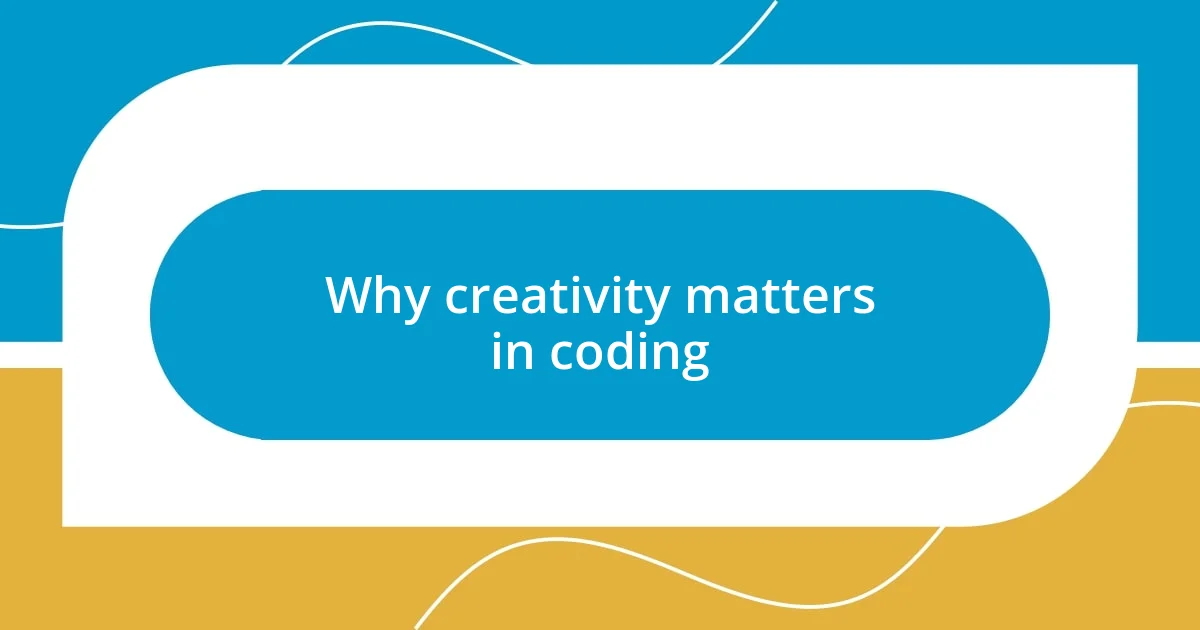
Why creativity matters in coding
Creativity in coding is essential because it fuels innovation. When I think back to the times I’ve been tasked with boring, repetitive coding work, I realized that my mind would often wander. However, during those moments of distraction, my brain started to weave new ideas for optimizing code. This transformative process allowed me to approach problems from different angles, ultimately enhancing my productivity and the quality of my code.
Moreover, creativity nurtures problem-solving skills. I’ve had instances where I faced seemingly insurmountable challenges due to limited resources. One time, while working on a mobile app, I had to find alternative solutions to a missing third-party library. Instead of seeing it as a setback, I embraced the challenge and created a unique workaround, which not only solved my problem but also sparked new features for the app. This taught me that embracing creativity can lead to breakthroughs in ways I didn’t think were possible.
In coding, creativity also fosters collaboration. I’ve experienced electrifying brainstorming sessions with teammates where ideas flowed freely. The synergy of diverse views often leads to groundbreaking concepts that none of us would have reached individually. Sharing these creative moments reinforces the idea that coding isn’t a solitary endeavor—it’s a collective journey that thrives on the vibrant interchange of ideas.
| Aspect | Standard Coding |
|---|---|
| Creative Coding | Encourages innovation and original solutions |
| Problem Solving | Follows established methods |
| Collaboration | Limited interaction with others |
| Learning Experience | Focused on syntax |
| Growth | Leads to stagnation |
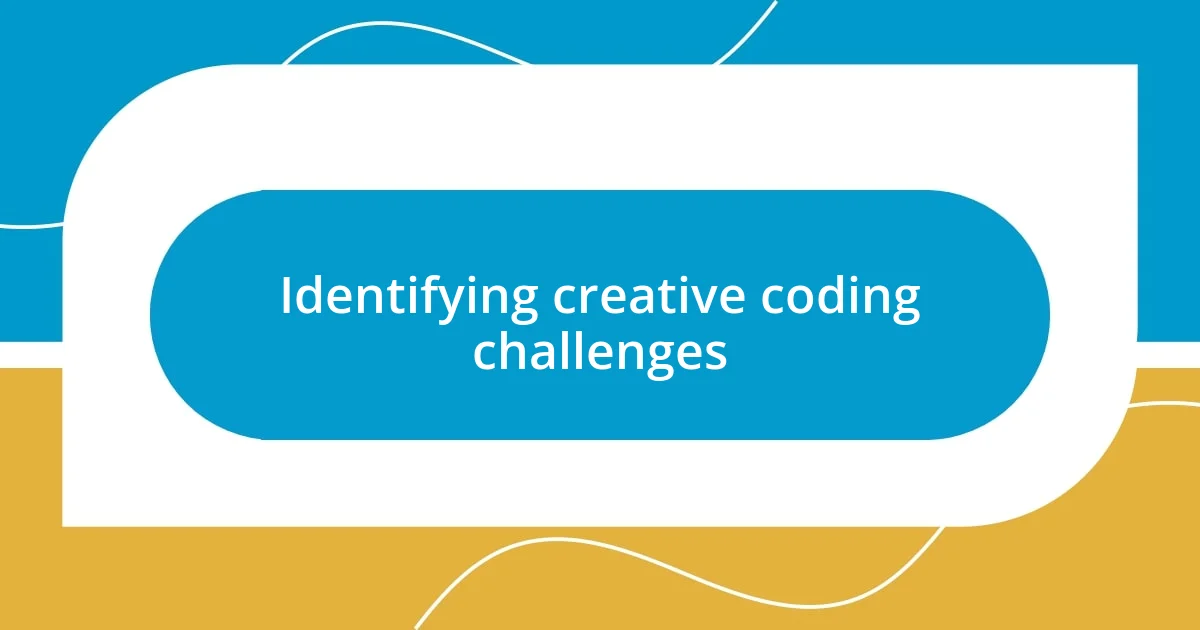
Identifying creative coding challenges
Identifying creative coding challenges often starts with looking at the projects that stretch your skills. I remember a time when I was tasked with creating an interactive game. Initially, I felt overwhelmed by my lack of experience in game design, but that uncertainty turned into excitement. It forced me to explore new frameworks and libraries I hadn’t touched before. Facing these moments of doubt can illuminate paths to creativity you may have never considered.
To help identify these challenges, consider the following approaches:
- Reflect on your interests: What excites you outside of coding? Integrating those interests can fuel your creativity.
- Experiment with constraints: Limitations can lead to innovative solutions, whether that’s time, tools, or frameworks.
- Engage with diverse communities: Learning from different perspectives can spark ideas that push your creativity further.
- Set personal challenges: Create a project with unique goals, like building an app from scratch or utilizing unconventional programming languages.
- Document your journey: Keeping a coding journal allows you to track challenges and brainstorm ideas, turning obstacles into opportunities for creativity.
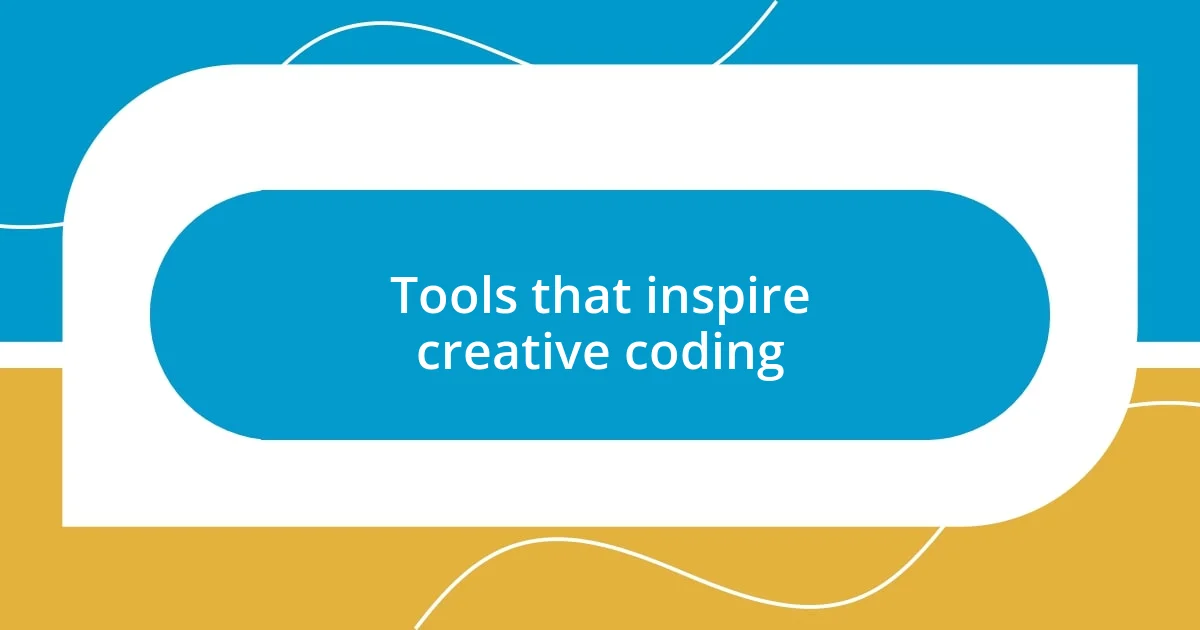
Tools that inspire creative coding
When it comes to tools that spark my creative coding process, I must highlight the importance of visual programming environments. For instance, I often dive into platforms like Processing or p5.js, which allow me to view my code’s impact in real-time. It’s exhilarating to see the immediate results of adjustments—almost like painting with code. Have you ever felt that rush of creativity when a few lines of code transform into something unexpected? It’s a game-changer.
Another tool that’s been a cornerstone of my creative journey is the use of game engines like Unity. I remember my first experiment with building a simple 2D game, and how it compelled me to think outside the box regarding user experience and design. The level of interactivity made me realize how coding can create not just functionality but also art. If you’ve ever wondered how to blend coding with storytelling, game engines might just offer the perfect canvas!
Finally, I can’t overlook the role of collaborative tools like GitHub and online forums. Through these platforms, I’ve engaged with fellow coders, sharing snippets and techniques that ha ve opened up new avenues for me. It’s fascinating to think about how a single line of code, shared by someone halfway across the globe, can inspire a new feature in my project. Isn’t it amazing how community can transform solitary coding into a collaborative creative experience?
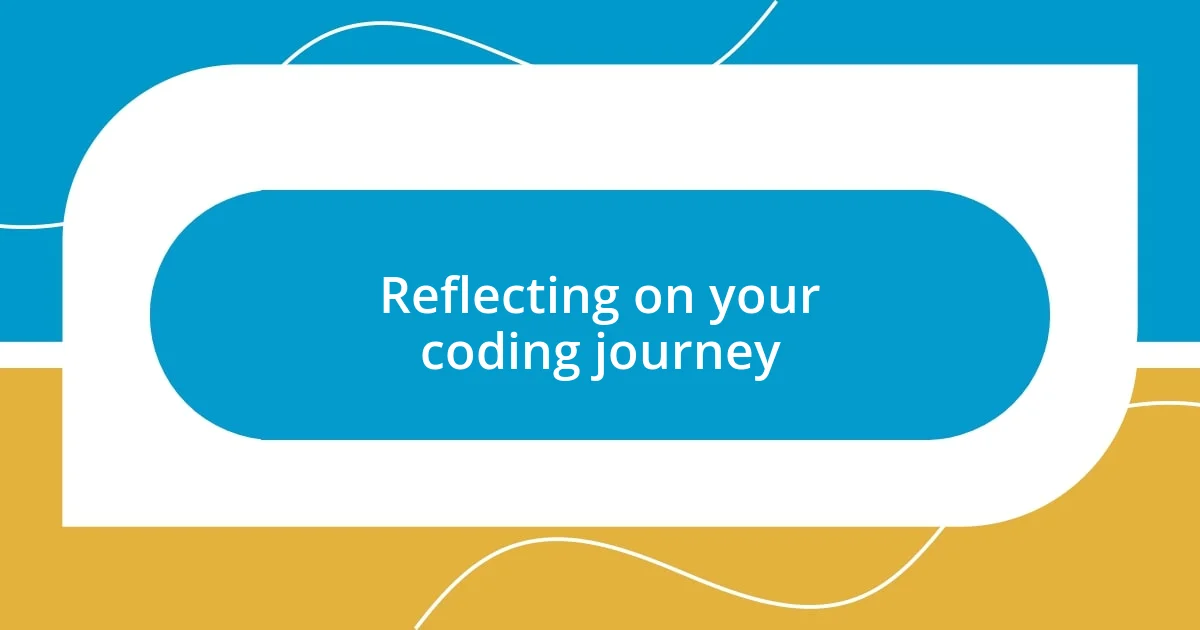
Reflecting on your coding journey
Reflecting on my coding journey has been a transformative experience. I often find myself thinking back to when I first started coding, feeling both excited and intimidated. Do you remember those early days of fumbling through syntax? It’s fascinating how each misstep became an opportunity for improvement, shaping my approach to challenges in unexpected ways.
Looking back at pivotal moments helps me appreciate how far I’ve come. For instance, there was a point when I struggled with a particularly tricky project—one that seemed impossible at first. But pushing through that wall not only expanded my skill set but also ignited a deeper love for creatively solving problems. Have you had similar experiences where perseverance opened doors you never expected?
As I reflect, I realize that every line of code was a stepping stone, leading me to innovate in ways I never thought possible. Whether it was coding a messy prototype or refining a robust application, each experience added layers to my creativity. What insights have your coding experiences revealed? Sometimes, those moments of doubt are simply the prelude to our most inspired work.

